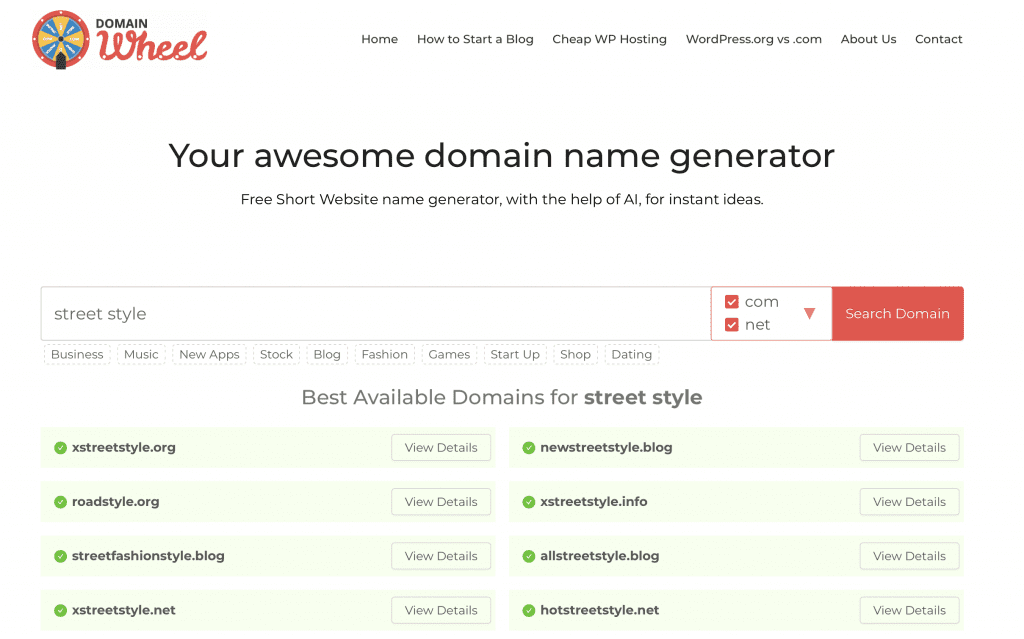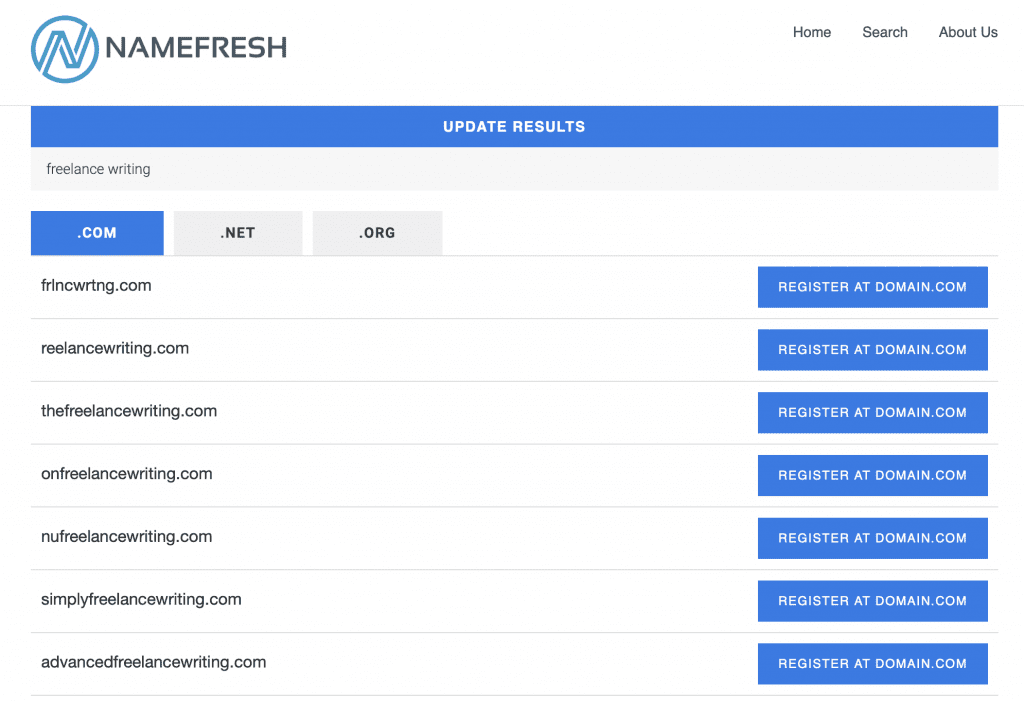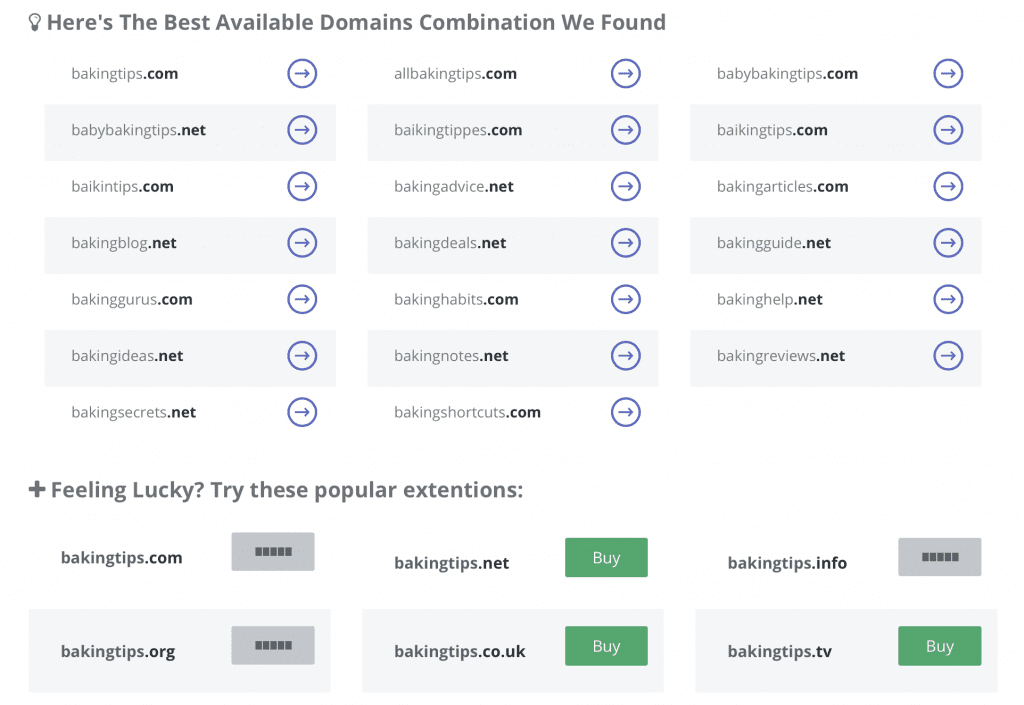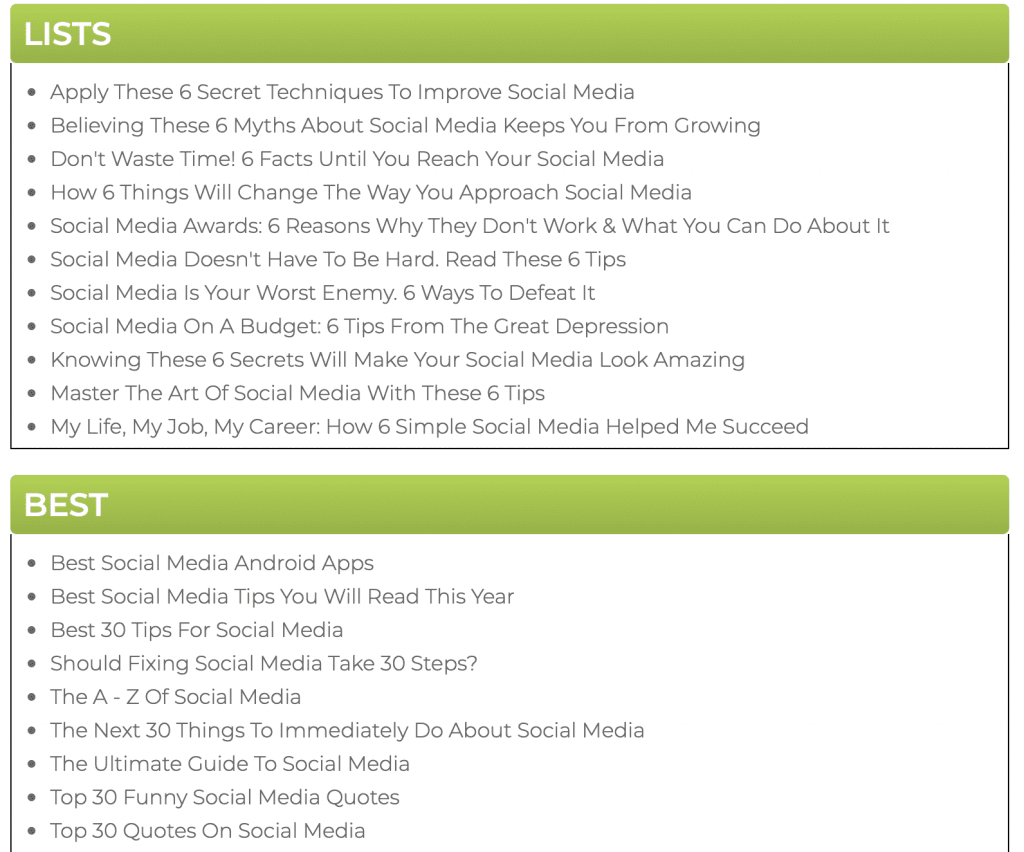Blogs and podcasts have stiff competition. There are so many out there that are competing for practically any keyword combination you can come up with. Unless you want to completely forgo your dreams of launching your project, though, you’ll need to choose a name – one that reflects your brand, product or service, and values.
The name of your blog or podcast is what people will first hear or see. It has to be memorable enough for a potential reader or listener to remember it and look it up. If the name of your project doesn’t make sense, has weird spelling or is instantly forgettable, you’ll never get the audience base you deserve. It should also have strong enough SEO for people to find it when searching for a specific topic.
Decide What Your Blog or Podcast Will Cover
If you have a half-baked idea, it’s going to be impossible to come up with the right name. Figure out the direction of your project before you try to name it.
- What is the main topic and what are the sub-topics?
- Are there any topics you definitely won’t talk about? For example, if you have a travel blog or podcast, you may not discuss eco-tourism, since that’s a topic with a lot of misinformation.
- Who is your target audience? Consider creating a customer persona.
- What is the tone of the blog or podcast? The name has to match the voice of the content. For example, if you have a corporate-style podcast, you don’t want a casual and fun name.
People need to immediately know what your blog or podcast is about by the name alone. While creativity is welcome, you don’t want to be so creative that you make the topic a mystery.
Broad vs. Topical Blogs and Podcasts
Covering a variety of topics, which is common on a personal blog or podcast, makes it difficult to choose a name that’s descriptive enough. For a blog, you may use your own name as the URL, which will work best if you already have a following. For a podcast, you could use your name followed by a colon and a descriptor, like “Lindsay Pietroluongo: Thoughts About Freelance Writing.” If your goal is to discuss topics you’re interested in while using your voice, and you’re not too concerned with monetization, it’s fine to stick with your own name.
However, if your blog or podcast is focused on one main topic and you want to be known as an authority in that niche, you need a descriptive name. While it can include the generic main topic, like travel, video games or writing, it’s best to get more detailed. By including an exact or partial match keyword, you’ll have an SEO advantage. Diving into SEO in this article would be too vast a topic to cover, but check out our article about advanced SEO tactics and this one about understanding search intent.
Is the Blog or Podcast a Brand Offshoot?
Sometimes blogs and podcasts stand alone; other times, they’re part of a larger brand. Will your blog or podcast be an extension of an existing brand? Are you launching a brand via a blog or podcast with the hope of building it out from there? Or will the project stand on its own now and in the future? If it’s going to be part of a brand, you have to consider the brand name, style, tone, voice and values, plus what’s appropriate to talk about and what’s not, what the brand’s audience wants, etc.
Get the Thesaurus Out
The thesaurus is going to be your best friend during this process. You’ll want a regular ol’ thesaurus, that dusty one that’s been sitting in your bookcase for years, for when you need a break from the computer screen. Until then, cozy up to Thesaurus.com – there are more synonym results here than in a hard copy thesaurus. You may also want to check out the Flip Dictionary, which is like a thesaurus but for when you can’t quite think of the right word to start with.
As you skim through synonyms, don’t let a word escape if you feel like it might be right. Write it down, and keep several lists or a mind map for reference. For example, let’s say I want to name a podcast on the topic of freelance writing. I look up “freelance” and “writing” in the thesaurus, then keep lists of the words I want to use, with the original word at the top:
Freelance
Free agent
Independent
Self-employed
Unaffiliated
Writing
Print
Scrawl
I’m not crazy about the “writing” results, so I look up “writer” instead.
Writer
Essayist
Stringer
Wordsmith
That’s better. Now I run with one of the synonyms I like to get even more ideas:
Unaffiliated
Detached
Free-wheeling
Objective
This can take a while, and your lists will get lengthy. As you continue brainstorming, cross off the ones you decide against and highlight the ones you keep coming back to. Then, start stringing words together and reordering them until something clicks. Keep lists of your name ideas, including the good ones and the bad.
Seek Out Inspiration
At this point, you may have come up with a great blog or podcast name from your thesaurus and word combination efforts alone. If not, it’s time to get inspired. You’re not going to steal somebody’s name or create a version of it that’s suspiciously similar, but you can get closer to a decision when you see what others have come up with. Here are a few places to look for naming inspiration:
- Book and chapter titles
- Magazine titles, sections and article titles
- Movie titles and famous lines
- Proverbs and well-known sayings
- Song names and lyrics
- TV show and episode titles
- Your competitors
You’ll come across a lot of alliteration and plays on words, both of which are effective because repeated sounds are memorable.
Consider Grammar, Punctuation and Spelling
If the name only makes sense with punctuation included or if you have to have certain letters capitalized to be clear, choose a different name. For example, if I want to name my blog “Lindsay With an A” (instead of the more typical spelling of “Lindsey” with an “E”), the URL will be lindsaywithana.com, which looks more like “Lindsay With Ana.” This applies more to blogs than podcasts because your podcast won’t necessarily have a matching domain name. For both, though, avoid words that are commonly misspelled (like “misspelled”).
Make Slight Changes to an Existing Name
Let’s say you come up with a name you love, but it already exists. The other blog or podcast has been defunct for years, so you won’t be in competition with it. Here are a few simple tweaks to make:
- Choose an alternate word that means the same thing. If you have a recipe blog, you could use “baking,” “cooking” or “kitchen” instead.
- Add a determiner like “a,” “every,” “the” or “my.”
- Use dashes between words, but only if it won’t be too clumsy. One dash is fine; several are annoying.
- Choose a different top level domain (TLD), which is the .com part of the domain name. You can use .net or .biz to stick with an original TLD or use something less common, like .art or .work.
- Purposely use an uncommon TLD to add clarity to the name. For example, .toys, .vacations or .rentals makes the URL more descriptive.
Try a Name Generator
A name generator suggests names based on the keywords you provide. Some will also tell you if that domain name is taken, and you may have the option to purchase it on the spot. Name generators often return corny or silly results or suggest names that don’t make much sense. You may still get lucky using one, though, especially if you choose one of the better tools out there. At the very least, it’ll jog your creativity. Here are three name generators to try:
DomainWheel: This is a basic name generator that’s helpful to get your ideas rolling. Here are the results for “street style”:

NameFresh: The results for “freelance writing” start off crummy – why would I choose “reelancewriting.com”? They get better as you go along, though. For example, guidefreelancewriting.com (or something like it) can help me narrow my topic. My audience will know I’m providing a guide to freelance writing instead of freelance writing horror stories, for example.

SoftwareFindr: This one is a little more helpful than the other two. The search results for “baking tips” return bakingsecrets.net and bakingshortcuts.com, both of which tell the audience a little more about what’s offered (lesser-known baking advice). There are also results for alternative extensions, like bakingtips.tv, which is perfect for a baking blog with video content.

If you’re not having much luck with a domain name generator, check out the Tweak Your Biz title generator. You won’t get a blog or podcast name that you can use as-is, but you will get a number of results that you can adapt to create a name. For example, here are some of the results for “social media”:

From these results, here are a few names I came up with. Some will work better for podcasts than blogs:
- The A to Z of Social Media
- The Art of Social Media
- Change Your Social Media Approach
- Debunking Social Media Myths
- Fix Your Social Media
- Secret Social Media Techniques
- Social Media on a Budget
Of course, you’ll have to do SEO research and also make sure the names aren’t taken, but a title generator may be more helpful than a name generator.
Give Your Brain a Break
The more you think about the right blog or podcast name, the further you’ll get from picking one. After a few hours or days of name generation, walk away from your notepad and put it out of your head. This is the time when the perfect name can unexpectedly come to you. It may be something you haven’t thought of yet, a combination of ideas you’ve had banging around, or a name you’ve already created that suddenly feels right.
Your project’s name is its identity – don’t rush this part of the process. Once you have your name, you’ll think in terms of it, like, “Hey, that idea would be perfect for Blog X!” It becomes easier to say “yes” to ideas that fit and “no” to ones that veer off course. Get clear on what topics you’ll be covering, who will be reading or listening and which keywords will make the biggest difference. With an approach that’s part methodical and part creative, you’ll eventually come up with a name that’s high-performing and catchy. The competition is strong, but there are definitely blog and podcast names that haven’t been scooped up yet.
Want to launch a blog but have no idea where to start? Discover 12 Types of Blogs and When They’re Most Successful.
Featured Image via EFOS Studio / shutterstock.com









Your post was careful and all around spread out. I preferred the supportive screen catch pictures you utilized. Made the post simpler to peruse. I likewise preferred the quantity of online name generators you recommended. What an incredible method to produce heaps of thoughts.
Hey Thanks for sharing these resources. They will help us to find more professional name for our blog or podcast. Your presentation way is awesome. Waiting for your next content.
Hi Lindsay,
Thanks for the helpful article about naming a blog or podcast.
Your post was thorough and well laid out. I liked the helpful screen capture images you used. Made the post easier to read. I also liked the number of online name generators you suggested. What a great way to generate lots of ideas.
Thanks so much, Mark! So glad the article was helpful and easy-to-understand.
It is a very valuable post.The Blog title is one of the main factor in SEO.It will helpful for bloggers